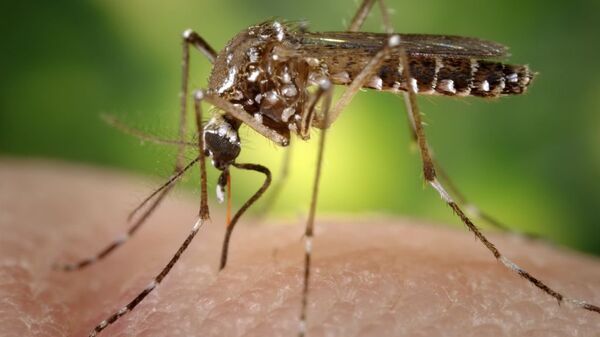As tropical diseases spread farther from the equator, viral conditions such as dengue and chikungunya are becoming growing threats in the U.S. There are no vaccines or cures for dengue, known as "break-bone fever," or chikungunya, which is so painful it causes contortions.
In the Keys, the southernmost city in the continental U.S., mosquitoes that spread these diseases have evolved to resist four of the six insecticides used to kill them, the Associated Press reported.
Now, British biotech firm Oxitec has patented a method of breeding mosquitos with gene fragments from the herpes simplex virus and E. coli bacteria, as well as coral and cabbage. This synthetic DNA, commonly used in laboratory science, is thought to pose no significant risks to other animals, but it kills mosquito larvae.
Oxitec's lab workers manually remove modified females, aiming to release only males, which don't bite for blood like females do. The modified males then mate with wild females whose offspring die, reducing the population.
"This is essentially using a mosquito as a drug to cure disease," said Michael Doyle, executive director of the Florida Keys Mosquito Control District, which is waiting to hear if the Food and Drug Administration will allow the experiment.
Oxitec has built a breeding lab in Marathon and hopes to release its mosquitoes in a Key West neighborhood this spring, the AP reported. This is the closest insects with modified DNA have ever come so to being released in a residential U.S. neighborhood.
FDA spokeswoman Theresa Eisenman said no field tests will be allowed until the agency has "thoroughly reviewed all the necessary information."
Some people, however, fear being bitten by a genetically modified mosquito more than dengue or chikungunya, which remain rare in the U.S. More than 130,000 people have signed a Change.org petition against the experiment.
"I think the science is fine, they definitely can kill mosquitoes, but the GMO issue still sticks as something of a thorny issue for the general public," said Phil Lounibos, who studies mosquito control at the Florida Medical Entomology Laboratory.
Oxitec asserts that only non-biting males would be released, and even if humans were somehow bitten, no genetically modified DNA would enter their bloodstream.
"I'm on their side, in that consequences are highly unlikely. But to say that there's no genetically modified DNA that might get into a human, that's kind of a gray matter," said Lounibos.
Key West resident Marilyn Smith, who watched Oxitec's presentation at a public meeting, noted that neither disease has had a major outbreak yet in Florida, so "why are we being used as the experiment, the guinea pigs, just to see what happens?"






